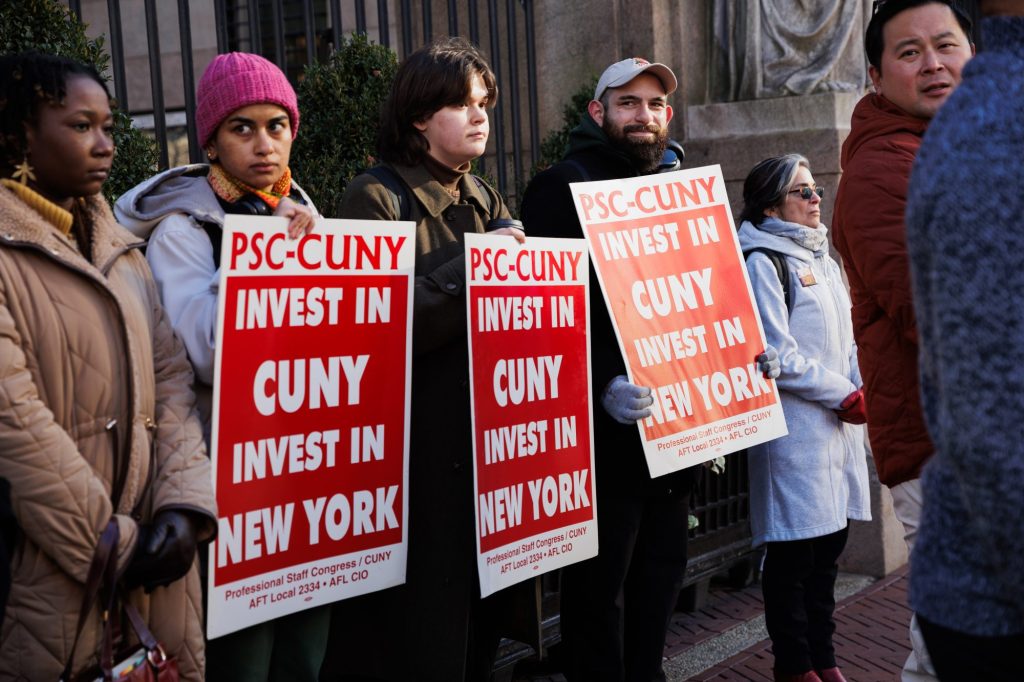
One of the many reasons why senior Muazam Moon chose to attend Hunter is simple: it stands among one of the best colleges in the region, and it’s campus is accompanied by scenic city views and the closeness of Central Park.
However, the Brooklyn native’s first-year experience did not live up to his expectations.
“First, I’ll be honest…coming through the main building and seeing the interior and escalators…It felt like being in an old shopping mall that was built in the eighties,” said Moon while recalling his first day at Hunter College.
“It felt like a downgrade from a high school.”
CUNY’s lack of funding is the root of many grievances – such as outdated infrastructure – that Hunter community members have come to face.
But a bill awaiting a vote in the State Senate is likely to address Hunter’s long-heralded financial constraints.
The Repeal Egregious Property Accumulation and Invest it Rights Bill, also known as the REPAIR Act, introduced by State Sen. John Liu and Assembly Member Zohran Mamdani plans to end low property tax privileges enjoyed by private higher education institutions including New York University and Columbia University. The estimated figure saved by these institutions in taxes last year, around $327 million, would be redistributed across CUNY’s 25 campuses.
Offices of Sen. Liu and Assembly Member Mamdani are yet to respond back to request of comments made by The Envoy.

Mr. Liu, who also presides as chairperson of the New York City Education Committee has actively argued against providing tax relief to city’s private institutions (Photo Credit: @LiuNewYork)
The prospect of additional funding to CUNY institutions like Hunter comes as a major win for groups that have advocated for financial support for years.
“I think for Hunter College, it would dramatically transform the way the school is structured right now,” said Johanna von Maack, a Young Democratic Socialists of America (YDSA) member who has actively campaigned for the REPAIR Act.
Von Maack believes its passage could bring a drastic measure to address fiscal challenges
. “This is a way of creating some sort of affirmative justice and putting money into the city and bringing it to CUNY,” she says.
The act also intends to end tax breaks on non-academic and profit-generating properties such as hospitals, putting halt to an advantage that the city’s private institutions have benefited from since their founding.
Columbia officials did not respond to requests for comments made by The Envoy.
Meanwhile, NYU has already expressed its disappointment at its departure from tax-exempt status. In a statement issued on Dec. 23, it called the proposal “misguided and unfair” while citing its role as a “charitable educational mission” which has contributed to the city’s economy.
Organizations such as the Professional Staff Congress (PSC)-CUNY a faculty union whose committee members contributed to building blocks of the REPAIR bill, do not completely agree with the contentions of NYU. Despite acknowledging their supportive role in the city’s economy, Jennifer Gaboury, a women and gender studies professor who also serves as the union’s chairperson from Hunter, suggests that the bill stands as a measure to make both institutions pay their dues as land owners.
“The core of the analysis that informed this bill…is the fact that NYU and Columbia are landholders. This is a property tax exemption, and both institutions hold land, not all of which is used for university purposes,” said Gaboury, who also regards REPAIR as the “smartest” economic decision due to its ability to incentivize student participation in local and state economy.
“CUNY and SUNY students stay in New York state and that is not true for a lot of elite institutions,” she said.
For Hunter in particular, the proposal offers a resolution for a wide range of issues – especially crumbling infrastructure and lack of full-time faculty – that students and faculty confront regularly.
In a survey conducted by The Envoy of 30 participants from Hunter College, more than 90% of respondents recalled encountering issues caused by lack of funding. From these results, compiled of responses from undergraduate students and faculty, the majority of them identified infrastructure, facilities and maintenance as some of the most underfunded issues.



Ever since the REPAIR Act’s announcement, some students and faculty alike have been optimistic.
For Moon, who is also part of the non-profit organization New York Public Interest Research Group (NYPIRG) and has participated in its higher education initiatives, a sum of $327 million is more than enough to solve Hunter’s existing problems.
“Even if we only get a portion of it, let’s say like $50 million, that’d take us a long way,” Moon said.
As he gears toward his final year, Moon has mixed feelings about defining his college experience.
“Considering its location in the city and its affordability, I would recommend it…but at the same time, I will say that there are better options,” he said.
However, it remains to be seen whether the amount promised by the proposal manages to satisfy CUNY’s budgetary needs.
While many on campus share an optimistic view on what REPAIR Act holds for Hunter’s future, Gaboury casts a critical question on the scope of the amount. “Part of what we have to remember is that this is still a small share of the money. Have you looked at the CUNY budget request for the year?”
Inconsistent funding by state and city to CUNY could risk permanent cuts of almost $41 billion between 2024 and 2026, according to a report published by City Comptroller Brad Lander last May, such budget cuts could increase the likelihood of slashing down faculty positions and course offerings.
In his testimony at the state’s joint hearing last month, Mr. Lander stressed the advancement of the REPAIR act amidst consecutive cuts faced by CUNY.
“Private universities should pay their fair share, so CUNY can thrive as one of the greatest engines of upward social mobility anywhere,” he said.

Leave a Reply